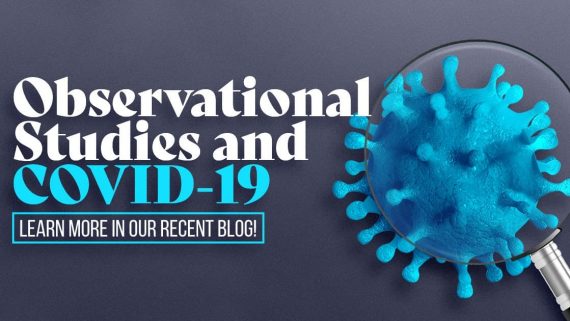Clinical research studies can be broken down into two categories. Interventional and Observational studies. Interventional studies are where a medication or device intervenes to prevent or treat a disease. Observational studies typically do not involve an intervention, although on occasion they may involve interventions that are a part of routine care, rather than assigned by the investigator. In a world fighting back against COVID-19, observational studies are being done to see if just a few drops of blood from a finger stick can be used to detect if an individual has antibodies to COVID-19, potentially making testing more available and safer during the pandemic.
Observational Studies
Observational studies are where researchers observe the effect of a risk factor, diagnostic test, treatment, or other intervention. Two common types are cohort and case control. A cohort is any group of people linked in some way, such as an age group, for example. Case-control studies identify people with a pre-existing health problem (cases) and a similar group without the problem (controls) and then compare them.

For COVID-19, observational studies help us learn more about the virus. In turn, this information is used to find better ways to detect, treat, and prevent COVID. Observational studies are a benefit not just to individuals affected by these conditions but also to society.
Finger Stick and COVID-19
Testing for the virus seems to have come full circle, from long lines at a few places to drive through sites and emailed results. While we’ve come a long way, there is still a need to diagnose COVID-19 quicker and safer. Finger stick testing is a blood test done by pricking your finger and collecting a few drops of blood. It is similar to what people with diabetes use to test their blood sugar levels.

Finger stick testing is also being evaluated to determine if an individual has COVID-19 antibodies as an observational study. ActivMed Practices & Research has joined the fight against COVID-19 and has participated in an observational study and a vaccine study for this virus. To learn more about how you can get involved, contact us for more information at (603) 319-8863, or visit our enrolling studies page.
References:
https://www.iwh.on.ca/what-researchers-mean-by/observational-vs-experimental-studies

